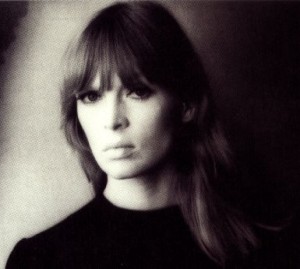“I’m flying to Ibiza. It’s my favourite place, and I think I’ll die there.” And 28 years ago today, Nico fulfilled her own prophecy after a fatal bicycle fall on the Spanish island she loved so much. She was 49. It was an inglorious if wryly self-scripted end for this legendary enigma whose lifetime of extraordinary successes and equally extraordinary failures had always been determined by a singular wilfulness. Born Christa Päffgen in Nazi Germany, at 14 she decided she was going to be a top model. So she loitered outside Berlin’s most upmarket department store, undismayed by those who told her that was not the way to be discovered. Within days, the 5’10” beauty was spotted by German couturier Ostergaard. With similar self-purpose, she conquered Paris, launched her film career in Fellini’s “La Dolce Vita”, and caught the attention of Andrew Loog Oldham – who was set to make her his Next Big Thing until Andy Warhol intercepted and catapulted her to Superstardom. As the Velvet Underground’s Aryan chanteuse, Nico was shrouded in an aura of mystery and cool. She inspired songs by Dylan, Jackson Browne and Lou Reed. She had affairs with all of them, as well as Brian Jones, Tim Buckley, Iggy Pop and Jim Morrison – who told her she should get serious, stop relying on other musicians, and become a poet and songwriter herself. So she did. In yet another extraordinary act of self-determination, she bought a portable harmonium, taught herself to play, and lay for hours in a darkened bath surrounded by candles until those Grimm lyrics came forth. The result was The Marble Index, a work of enduring otherworldy genius with its sepulchral death drones from the depths of who the fuck knows where.
But then, with that same monolithic resolve, Nico elected to self-destruct. She refused to be beautiful. Commenting on “I’ll Be Your Mirror”, which Lou Reed had written for her, she said: ‘I can’t identify with it – to notice only the beautiful and not the ugliness.’ She demanded to be a heroin addict with a frighteningly pragmatic rationale: ‘I have too many thoughts’ and ‘it is better to be addicted to opium than it is to be addicted to money.’ While her audience and former colleagues observed the resultant train wreck with decreasing interest and pity, Nico herself – as ever – was doing precisely what she wanted.
Towards the end of her life, she said her only regret was she hadn’t been born a man. As it was, she was one of the greatest outsider women of the twentieth century.



7 Responses to 18th July 1988 – the Death of Nico